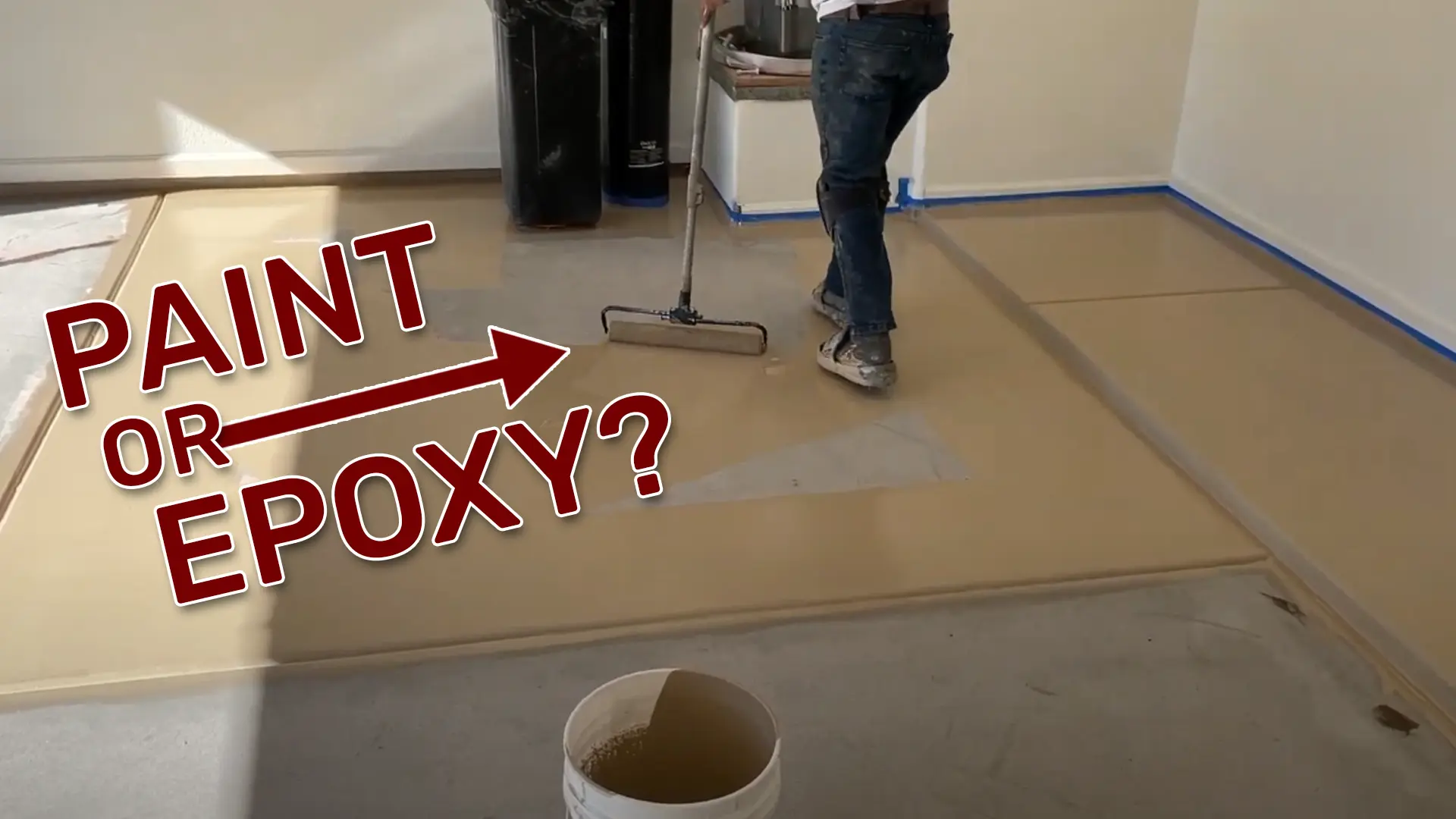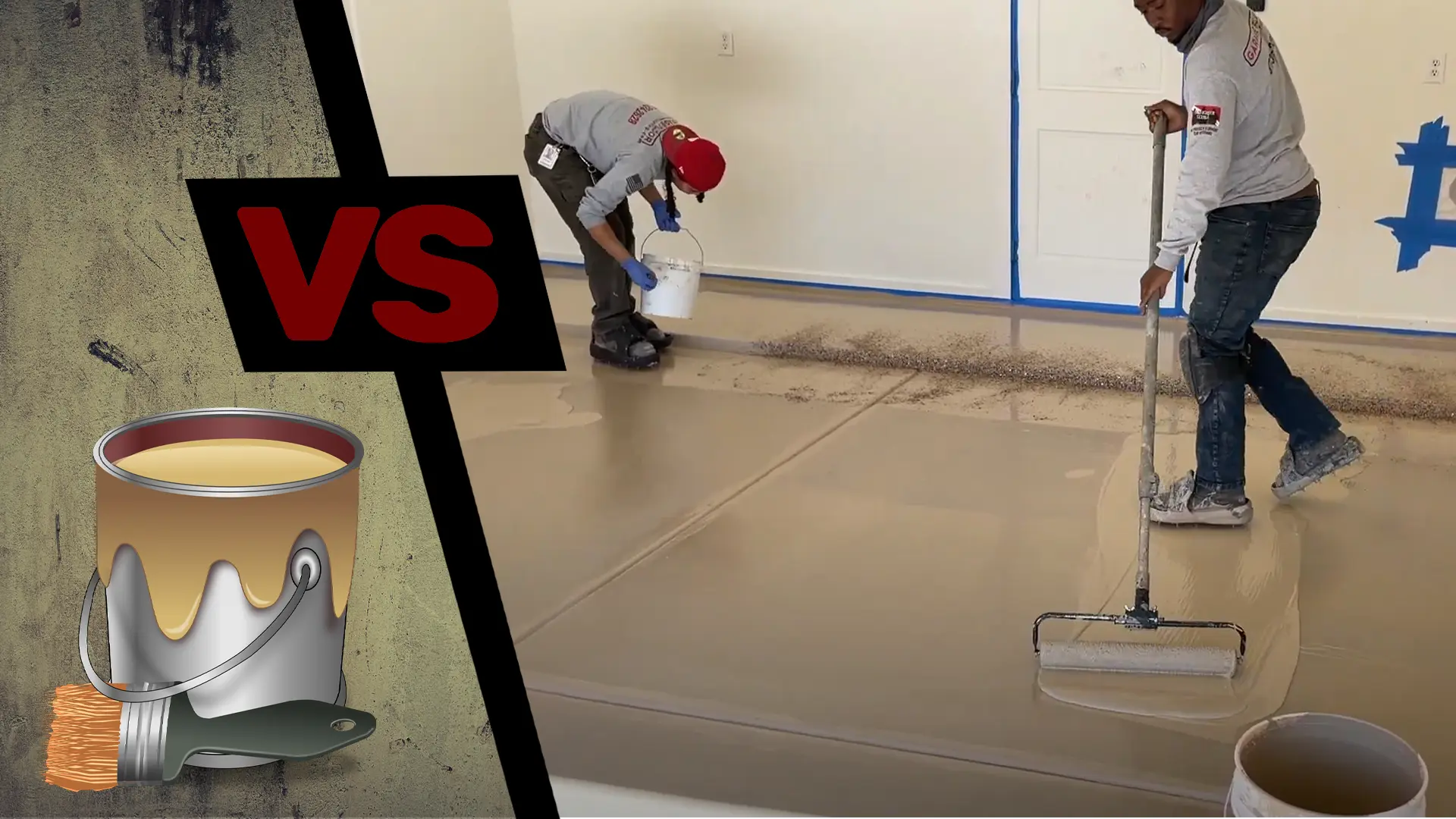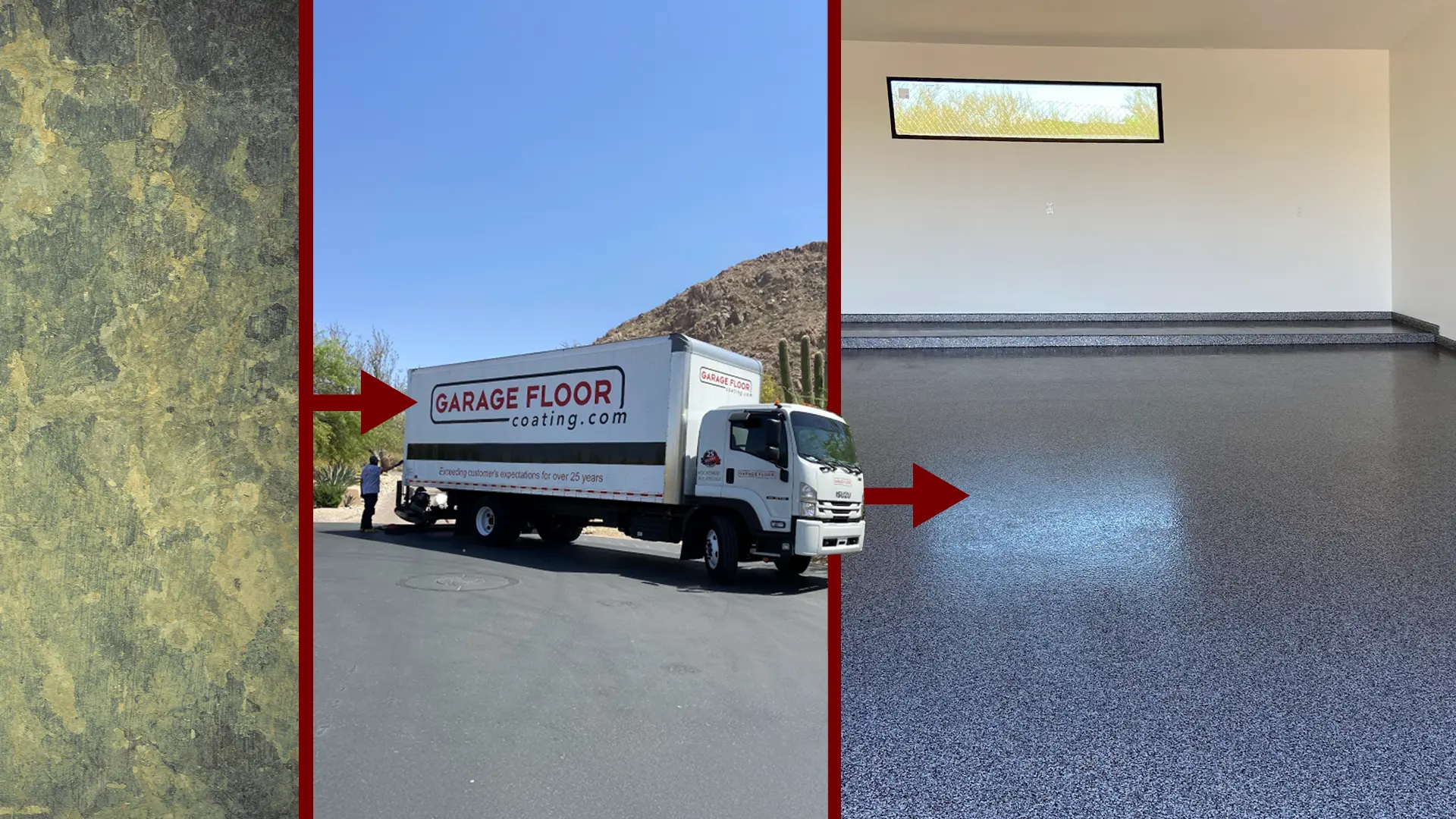When it comes to enhancing your concrete surfaces, the options often boil down to basic methods like concrete paint and more advanced coatings like epoxy, polyurethane, or polyurea polyaspartic systems. While both serve to improve the look of your space, their differences in durability, longevity, and functionality are significant. If you’re deciding between the two, it’s essential to understand what each option offers. Concrete paint vs. epoxy flooring? In this blog, we show that epoxy flooring always stands out as the superior choice.
Concrete Paint vs. Epoxy Flooring: What is Concrete Paint?
Concrete paint is a water- or oil-based paint designed specifically for application on concrete surfaces. Typically made with acrylic or latex additives, it’s thin and primarily intended to add a layer of color or cosmetic improvement to your floors or walls. While it’s easy to apply with a brush or roller, concrete paint doesn’t chemically bond with the surface.
This lack of bonding makes concrete paint less durable over time. It’s prone to peeling, chipping, and wearing down, especially in high-traffic areas or places exposed to moisture. It’s a quick and budget-friendly option for cosmetic touch-ups but provides little in terms of protection for your concrete.
Concrete Paint vs. Epoxy Flooring: What is Epoxy Flooring?
Epoxy flooring, along with other advanced coatings like polyurethane and polyurea polyaspartic systems, offers a completely different approach to protecting and enhancing concrete. These coatings are much thicker than concrete paint, forming a protective layer that chemically bonds to the concrete substrate.
Epoxy flooring, in particular, is a two-part system consisting of resin and hardener. When mixed, these components react to create a strong, durable surface that’s resistant to wear, moisture, chemicals, and impacts. This durability makes epoxy an ideal choice for waterproofing basements, garages, driveways, and commercial spaces where concrete surfaces see heavy use.
Unlike concrete paint, epoxy flooring doesn’t just sit on top of the concrete—it integrates with it, creating a seamless and long-lasting finish that won’t chip or peel.
Why Epoxy Flooring is the Superior Choice
While concrete paint is purely cosmetic, epoxy flooring combines both aesthetics and functionality. Here’s why epoxy stands out:
- Durability: Concrete paint is prone to wear and damage, while epoxy flooring resists heavy traffic, abrasions, and chemical exposure.
- Longevity: If you’re lucky, concrete paint may last a few years before requiring touch-ups. Epoxy flooring, on the other hand, can last a decade or two with proper maintenance.
- Protection: Epoxy creates a moisture-resistant barrier, protecting against mold, mildew, and even radon. Concrete paint offers no significant protection.
- Aesthetics: While concrete paint offers basic color options, epoxy flooring comes in a range of finishes, including high-gloss, metallic, and decorative flakes, allowing for more customization.
- Ease of Maintenance: Epoxy’s non-porous surface is easy to clean and maintain, while painted concrete may stain and require frequent reapplication.
Trust Quality Installations
If you’re deciding between concrete paint and epoxy flooring for your Dallas home, the choice ultimately comes down to what you want out of your concrete surface. While concrete paint is a simple and budget-friendly way to enhance appearance temporarily, epoxy flooring provides long-lasting protection, durability, and style.
Contact GarageFloorCoating.com North Dallas today to learn more about how we can transform your concrete with superior epoxy finishes that stand the test of time.



